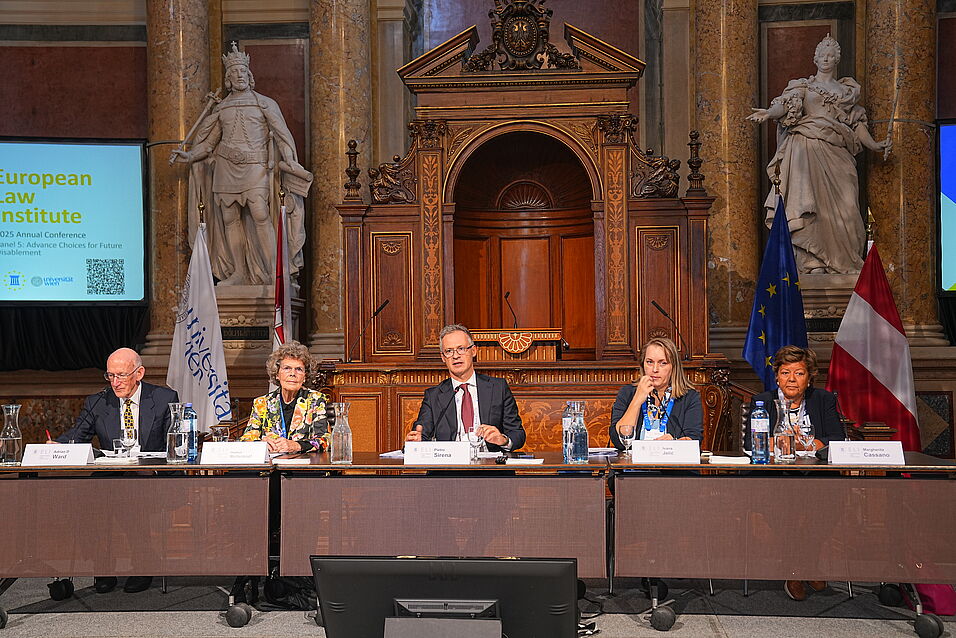The discussion focused on how the law can support individuals in making advance choices to safeguard their autonomy and dignity in the event of future loss of capacity. It highlighted the need for coherent legal frameworks to ensure clarity, personal empowerment, and respect for self-determination across Europe.
Adrian D Ward, Project Co-Reporter and Founder Chairman of an NHS Trust and a Mental Health Association, presented ELI’s draft in the field, underscoring the importance of accessible and robust mechanisms for advance choices. He emphasised the value of resolution mechanisms allowing individuals to specify trusted decision-makers, including in complex or contested situations.
Ivana Jelić, Vice-President of the European Court of Human Rights, commended ELI’s project for its contribution to a still fragmented legal landscape. She noted that the proposed principles and model legislation enhance legal certainty, foster convergence while respecting diversity, and promote personal autonomy, values closely aligned with the Council of Europe’s objectives and the ECtHR’s jurisprudence.
Margherita Cassano, former First President of the Italian Supreme Court, highlighted the evolving concept of fragility. Once seen mainly in economic terms, it now encompasses dignity and personal development across cultural, psychological, and social spheres. She cited the protection of minors in parental separations as an example, stressing that the law must address the full range of human vulnerability, not just financial incapacity.
Heidrun Mollenkopf, President of AGE Platform Europe, brought a civil society perspective, stressing the importance of ensuring that older people’s voices shape policy. She highlighted recent policy developments, including the European Commission’s decision to retain the Horizontal Equal Treatment Directive and the establishment of a UN working group on a binding treaty for the rights of older persons, both key steps toward stronger legal protection.
Moderated by Pietro Sirena, ELI Treasurer and Professor at Bocconi University, the panel concluded with a lively discussion on how law and policy can better anticipate future needs and uphold autonomy throughout life.

